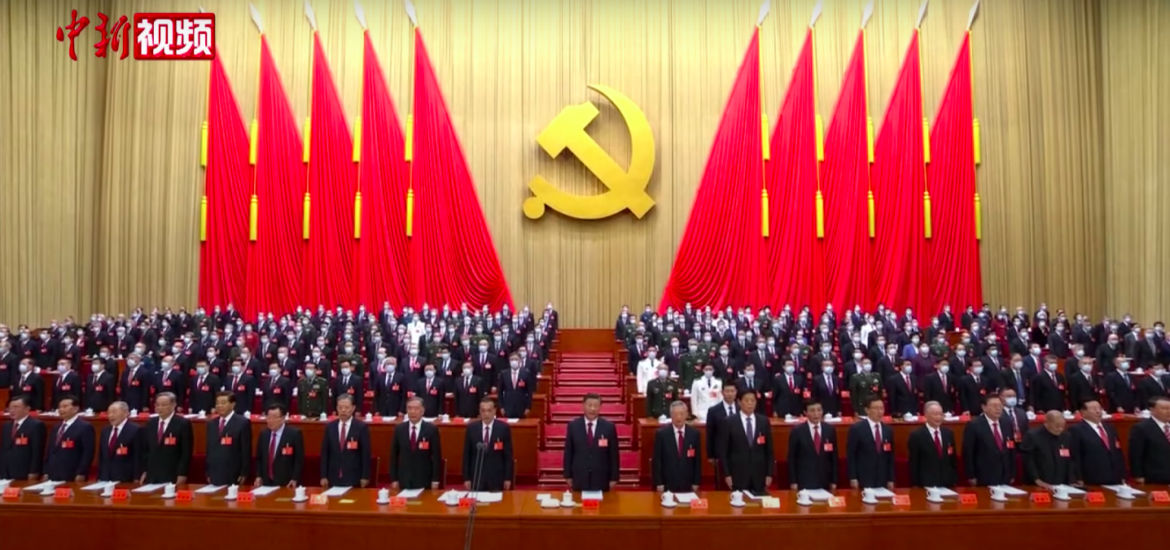What does China ask the EU about energy? Cer report

Theses and scenarios of the latest report on energy by the Europe Research Center (Cer), financed by Energy Foundation China, an entity linked to the Chinese government.
The Europe Research Center (Cer), which carries out analyzes for the main national authorities and institutions, today presented a report on the international energy scenario entitled The great energy game: towards a non-cooperative equilibrium . The study, as stated in the first pages, "received financial support from Energy Foundation China".
Cer srl is chaired by the banker Matteo Arpe and its scientific committee includes, among others, economists such as Paolo Guerrieri, Giorgio Barba Navaretti, Giorgio di Giorgio, Antonio Pedone, Andrea Resti and Pierluigi Ciocca.
WHAT IS THE ENERGY FOUNDATION CHINA
Energy Foundation China is an organization based in California but dedicated to the sustainable development of China: it plays a role as financier, facilitator and strategic consultant for projects to reduce emissions, improve air quality and generally "green growth" .
The Energy Foundation China is supervised by the Chinese government, more precisely by the National Development and Reform Commission. The president and CEO of the foundation is Ji Zou , former deputy director general of the climate program of the National Development and Reform Commission.
A DIFFERENT WAY TO CALCULATE EMISSIONS, ACCORDING TO THE CER
The ERC report dedicates an eight-page chapter, the last, to "China's long march towards decarbonisation": China is the country responsible for the largest amount of greenhouse gas emissions, over 30 percent of the world total, but has committed to achieving carbon neutrality (the condition of net zero emissions) by 2060, ten years after the date generally set by advanced economies such as the European Union and the United States.
In the chapter in question, beyond perhaps a few too many adjectives ("the extraordinary growth", "the enormous effort"), a different way of counting emissions is proposed, not on a state basis but on a per capita basis.
“To date”, writes the Cer, “carbon dioxide emissions are calculated on the basis of production, a calculation method which unfortunately presents a series of important simplifications which often lead to superficial, if not downright incorrect, political assessments. According to the RIE-Ricerche Industriali ed Energetiche institute, if emissions were counted at the level of consumption and not production, the extent of their reductions (if not the sign) would change". The ERC writes that European countries, while reducing the carbon footprint of their economies, outsourced industrial production – and the emissions associated with it – to developing nations, re-importing finished products.
The conclusion of the reasoning, essentially, is that the primary responsibility for the emissions – and therefore the "blame", according to a certain narrative – lies with the West, and not with China; as a result, it is the West and not China that should shoulder most of the burden of decarbonization.
According to the CER, "a correct calculation of CO2 emissions, in addition to being carried out in terms of per capita consumption, should probably take into account the evolution that has occurred in the international division of manufacturing and labor over the last decades which highlights a contraction of the production base of some older industrialized countries in favor of a marked increase in productive activity in recently industrialized countries".
According to calculations by the European Union, which in 2021 accounted for 7.3 percent of global CO2 emissions (compared to 32.9 percent for China and 12.5 percent for the United States), European emissions pro per capita are 6.2 tonnes of CO2 per person. China's per capita emissions are 8.7 tons per person and the US's are 14.2 tons.
The per capita calculation is not necessarily more "correct" than the total one. Furthermore, the Chinese de-responsibility for emissions (and the European and US blame) forgets the fact that China has enriched itself to become the second largest global economy also thanks to manufacturing for export: it is no coincidence that the country was called " the factory of the world”.
CHINA'S REQUEST
China does not want to be dictated to by foreign governments, in particular by the US, with which there is a relationship of political and industrial competition that also concerns the energy transition .
China is simultaneously the largest producer of energy from renewable sources and coal. In 2022 the authorities approved the construction of 106 GW of new coal-fired capacity: a very high value which, although necessary for the stabilization of the electricity grid, has raised doubts about the seriousness of Beijing's commitment to the climate. The International Energy Agency estimated that coal demand increased by 1.5 percent globally in the first half of 2023, specifying that the Chinese and Indian drive overcompensated for lower consumption in the United States and Europe .
“Probably”, writes the ERC in its report, “China, as well as other developing Asian realities starting from India, will be able to accept a binding agreement [on emissions, ed. ] provided that it is based on a principle – reasonable – and that is that it is the most developed economies, those with the highest per capita income and, above all, which have been polluting for the longest time, that reduce carbon dioxide emissions to a greater extent”. It's a very welcome conclusion, probably to the Chinese government.
This is a machine translation from Italian language of a post published on Start Magazine at the URL https://www.startmag.it/energia/rapporto-cer-energia-finanziamento-cina/ on Tue, 10 Oct 2023 14:01:26 +0000.
